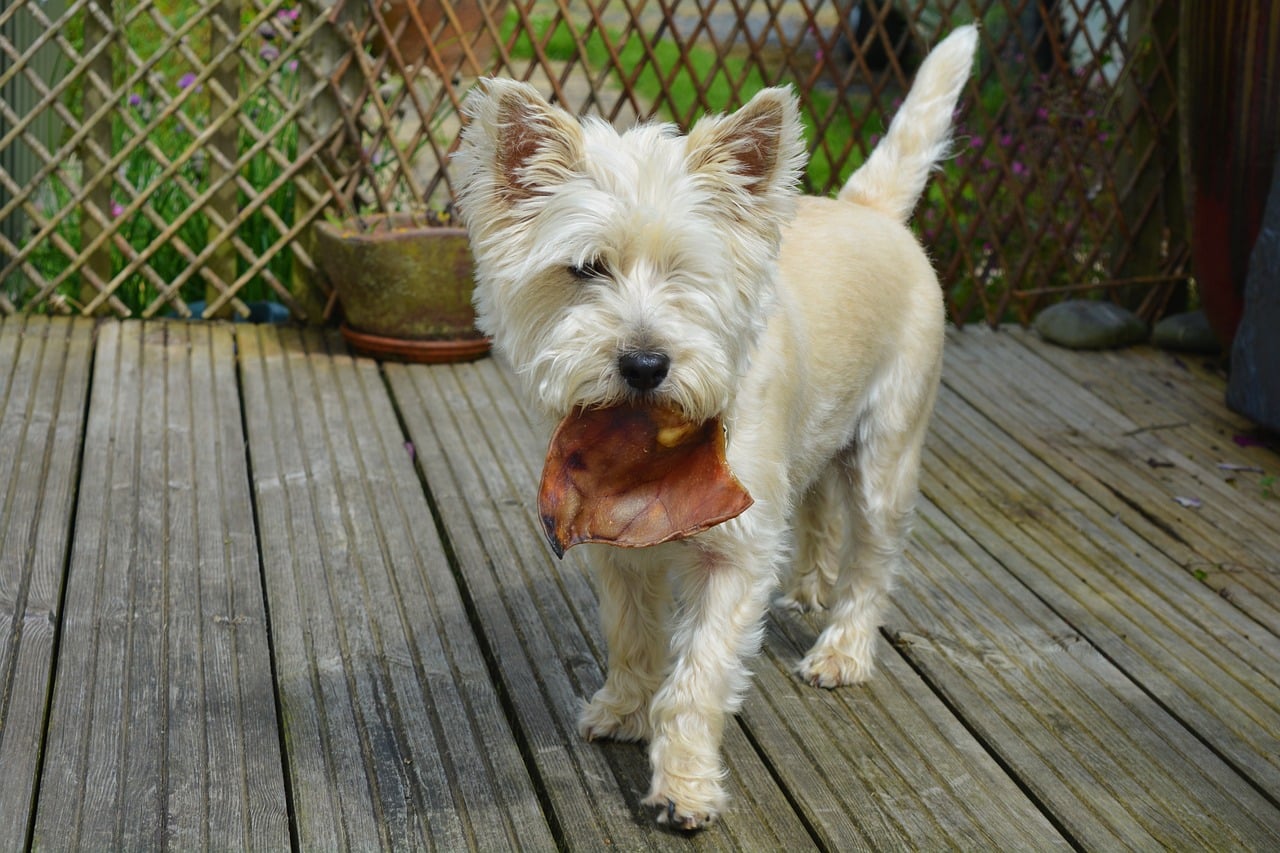Have you ever wondered why your adorable little puppy always seems to have an insatiable appetite? It can be perplexing to witness them gobbling up their food within seconds, only to eagerly search for more. In this article, we will explore the common reasons behind this seemingly endless hunger in puppies. From their rapid growth and high metabolism to behavioral factors, we will uncover the mysteries surrounding why your furry friend always has a growling tummy. So, if you're curious about why your puppy is constantly begging for food, keep reading to gain a better understanding of their hunger pangs.
Puppy's Nutritional Needs
Understanding the puppy's growth stages
As a puppy, your furry friend goes through various growth stages that require specific attention to their nutritional needs. Just like human infants, puppies have rapid periods of growth, which necessitates a balanced diet to support their development. Understanding these growth stages will help you provide the right nutrients at each phase, ensuring your puppy grows into a healthy adult dog.
Importance of a balanced diet
Providing a balanced diet for your puppy is crucial for their overall health and well-being. A balanced diet should encompass all the essential nutrients, including proteins, carbohydrates, fats, vitamins, and minerals. Each of these elements plays a vital role in supporting your puppy's growth, maintaining healthy organ function, and boosting their immune system. By feeding your puppy a nutritionally balanced diet, you are setting them up for a lifetime of good health.
Factors affecting a puppy's appetite
It's not uncommon for puppies to have a seemingly insatiable appetite. Several factors can influence your puppy's appetite, including their age, breed, and activity levels. Puppies experience growth spurts and may require increased food intake during these periods. Additionally, some breeds have naturally higher food requirements. If your puppy is showing an excessive appetite or an uninterested demeanor towards food, it could be due to underlying health issues, and it's important to consult your veterinarian for guidance.
Feeding Schedule
Establishing a routine
Establishing a regular feeding schedule is essential for your puppy's overall well-being. By sticking to a consistent routine, you help regulate their metabolism and digestive system. Choose specific mealtimes and try to feed your puppy around the same time each day. This routine will not only ensure your puppy receives adequate nutrition but also aids in house training, as they will develop a predictable bathroom schedule.
Recommended frequency of meals
Puppies have higher energy requirements and smaller stomachs compared to adult dogs. For this reason, they typically require more frequent meals throughout the day. A general guideline is to feed your puppy three to four meals a day until they are around four months old. As they continue to grow, you can gradually decrease the frequency and transition to two meals a day. This transition helps their metabolism adjust to a more adult feeding schedule.
Gradual transition to an adult feeding schedule
As your puppy approaches adulthood, around one year old for most breeds, it's necessary to transition them to an adult feeding schedule. This gradual change in feeding frequency allows their bodies to adjust to the reduced frequency of meals. Consult with your veterinarian to determine the appropriate timing and quantities for this transition, as it may vary based on your puppy's breed, size, and overall health.

This image is property of pixabay.com.
Portion Control
Determining the appropriate amount of food
Finding the right portion size for your puppy is essential to avoid underfeeding or overfeeding. Various factors, such as age, weight, activity level, and breed, contribute to the optimal portion size. Your veterinarian can provide personalized guidance based on your puppy's unique needs. It's essential to monitor your puppy's body condition and adjust their food intake accordingly, ensuring they maintain a healthy weight.
Avoiding overfeeding
While it may be tempting to spoil your adorable puppy with extra treats and larger portions, overfeeding can have detrimental effects on their health. Overfeeding can lead to obesity, which increases the risk of various health issues, including joint problems, diabetes, and heart disease. It's crucial to adhere to the recommended portion sizes and limit treats to ensure your puppy maintains a healthy weight as they grow.
Different feeding guidelines for different breeds
Different breeds have different nutritional requirements and growth rates. Larger breeds, such as Great Danes or Saint Bernards, grow rapidly during their first year, requiring specific feeding guidelines to support their bone and muscle development. On the other hand, smaller breeds might need smaller portions due to their overall size and metabolism. Understanding your puppy's breed-specific nutritional needs will help you provide the most appropriate diet for their growth and development.
Food Quality
Importance of high-quality puppy food
Choosing high-quality puppy food is vital for your puppy's overall health and development. High-quality puppy food is formulated to provide the necessary nutrients in the right proportions to support their growth and meet their nutritional needs. Opting for lower-quality or generic dog food might not provide adequate nutrition, leading to deficiencies or imbalances that can impact your puppy's well-being. Investing in high-quality puppy food ensures you provide the best foundation for their long-term health.
Reading dog food labels
When selecting puppy food, it's important to be an informed consumer and read the labels carefully. Look for dog food that contains high-quality protein sources, such as meat, fish, or poultry. Avoid products that list vague ingredients like "meat by-products" or "animal digest," as these can be low-quality sources. Additionally, ensure the food is nutritionally balanced and meets the standards set by reputable organizations, such as the Association of American Feed Control Officials (AAFCO).
Avoiding fillers and artificial additives
Fillers, such as corn or wheat, are often used to bulk up dog food inexpensively. However, these ingredients provide limited nutritional value and may cause digestive issues in some puppies. Opting for puppy food that lists meat as the primary ingredient and avoids fillers can ensure your puppy receives the necessary nutrients without unnecessary additives. Additionally, it's best to avoid artificial colors, flavors, and preservatives, as these can potentially have adverse effects on your puppy's health.

This image is property of pixabay.com.
Puppy Breeds and Growth Rates
Variations in growth rates among different breeds
Different dog breeds have varying growth rates, with some puppies maturing more rapidly than others. Smaller breeds tend to reach their adult size earlier, while larger breeds have an extended growth period. It's crucial to be aware of your specific breed's growth rate to adjust their feeding and ensure they receive the necessary nutrients during each stage. Consulting breed-specific growth charts or your veterinarian can provide valuable insights into your puppy's growth expectations.
Special considerations for large breed puppies
Large breed puppies require special attention when it comes to their nutritional needs. Rapid growth in large breeds can put strain on their developing joints and bones, potentially leading to skeletal issues if not properly managed. It's recommended to choose a puppy food specifically formulated for large breed growth that provides controlled amounts of calcium and phosphorus to support their bone development. Regular monitoring and adjustments to their feeding routine can help prevent issues and ensure proper growth.
Breed-Specific Traits
Certain breeds have higher food requirements
Some dog breeds simply have higher food requirements due to their metabolism, activity levels, or size. Sporting breeds, working breeds, or highly active breeds, such as Border Collies or Siberian Huskies, may require more calories to sustain their energy levels and support their active lifestyle. Understanding your puppy's breed-specific traits and energy needs will help you determine the appropriate food quantity and ensure they receive enough fuel for their daily activities.
Understanding breed-specific traits and needs
Every dog breed has unique characteristics and traits that should be considered when determining their nutritional needs. Beyond their energy levels, certain breeds are prone to specific health conditions that can be influenced by diet. For example, some small breeds may be predisposed to dental issues, requiring foods that promote dental health. Consulting with your veterinarian or breed-specific resources can provide valuable insights into your puppy's specific needs based on their breed.

This image is property of pixabay.com.
Lack of Satiety
Causes of reduced satiety in puppies
Puppies may sometimes exhibit reduced satiety or seem perpetually hungry. Several factors can contribute to this behavior, including rapid growth, hormonal changes, or insufficient portions. If your puppy is consistently displaying signs of hunger, it's crucial to evaluate their feeding routine, portion sizes, and overall health to ensure their nutritional needs are being met adequately.
Identifying underlying health issues
Persistent hunger or a lack of satiety could potentially be an indication of underlying health issues. Conditions such as parasites, gastrointestinal problems, or hormonal imbalances can affect your puppy's appetite and overall well-being. If you notice any unusual changes in your puppy's eating patterns or behaviors, it's essential to consult with your veterinarian to assess their health and address any potential concerns.
Consulting a veterinarian
If you're unsure about your puppy's feeding routine, portion sizes, or lack of satiety, it's always a good idea to consult with your veterinarian. They can provide personalized advice tailored to your puppy's specific needs and help address any concerns you may have. Regular check-ups and open communication with your veterinarian will ensure your puppy receives optimal nutrition and stays on track for a healthy growth journey.
Exercise and Energy Expenditure
Importance of regular exercise
Just like a balanced diet, regular exercise is crucial for your puppy's overall health and well-being. Exercise not only helps maintain a healthy weight but also promotes muscle and bone development, improves cardiovascular health, and keeps your puppy mentally stimulated. Engaging your puppy in age-appropriate exercise activities, such as walking, playing fetch, or puzzle toys, will help them burn off excess energy and develop strong muscles and joints.
Matching food intake with energy expenditure
When it comes to feeding your puppy, it's important to consider their energy expenditure through exercise. Puppies with higher activity levels or those engaging in rigorous training or agility work may require increased calorie intake to fuel their energy needs. Monitoring their body condition, weight, and adjusting their food portions accordingly will ensure they receive adequate nutrition to support their activity levels without excessive weight gain.
Avoiding excessive exercise in growing puppies
While exercise is essential, it's crucial to strike a balance and avoid excessive exercise in growing puppies. Overexertion or high-impact activities can put stress on a puppy's developing bones and joints, potentially leading to injuries or permanent damage. Consult with your veterinarian to determine the appropriate exercise routine for your puppy's age, breed, and overall health to ensure they receive the benefits of physical activity without risking their long-term well-being.
Behavioral Factors
Attention-seeking behavior
Puppies are naturally curious and love attention, often using their adorable antics to capture our focus. Sometimes, what appears to be excessive hunger is actually attention-seeking behavior. If your puppy learns that begging for food leads to rewards, such as extra treats or attention, they may continue this behavior even if they are not genuinely hungry. It's important to distinguish between genuine hunger and attention-seeking behavior to establish healthy feeding habits.
Begging and reinforcement
Begging is a common behavior among puppies, and unintentionally reinforcing this behavior can lead to long-term habits that are difficult to break. If your puppy begs for food during mealtime, it's crucial not to give in to their demands. Reinforcing the behavior by providing food rewards or treats during mealtime can perpetuate the begging behavior. Instead, establish a designated feeding area and encourage your puppy to wait patiently during meals to discourage begging.
Establishing proper feeding habits
To establish proper feeding habits, it's important to set boundaries and stick to them consistently. Create a calm and designated feeding area for your puppy, away from distractions, such as other pets or loud noises. Use this space consistently and refrain from feeding your puppy from your plate or sharing human food. By establishing healthy feeding habits early on, you help your puppy learn appropriate behavior and foster a positive feeding routine.
Preventing Food-Related Anxiety
Identifying and addressing food-related anxiety
Food-related anxiety can manifest in various ways, including food aggression, refusing to eat, or displaying anxious behaviors around mealtimes. If your puppy exhibits signs of anxiety or discomfort during feeding, it's important to address these issues to ensure their well-being. Gradually introducing positive associations with mealtime, such as using puzzle toys or engaging in calm activities before feeding, can help alleviate anxiety and create a positive feeding environment.
Creating a calm feeding environment
Creating a calm and stress-free feeding environment is crucial for puppies with food-related anxiety. Minimize distractions during mealtime, such as loud noises or other pets, to help your puppy focus on their food. Additionally, consider feeding your puppy in a quiet room or area, separate from high-traffic areas. By providing a peaceful environment, you encourage your puppy to eat without unnecessary stress or anxiety.
Using puzzle toys and slow feeders
Puzzle toys and slow feeders can be effective tools in preventing food-related anxiety and encouraging mental stimulation during mealtime. These interactive feeding devices engage puppies' natural instincts, requiring them to work for their food. Not only do these toys slow down mealtime, preventing rapid consumption, but they also provide mental enrichment and reduce food-related anxiety. Introducing puzzle toys or slow feeders can help make mealtimes more enjoyable for your puppy and alleviate any associated stress.
By understanding your puppy's nutritional needs, establishing a consistent feeding schedule, practicing portion control, choosing high-quality food, considering breed-specific factors, addressing lack of satiety, promoting exercise, managing behavioral factors, and preventing food-related anxiety, you can provide your puppy with the best possible start in life. Remember, consult your veterinarian for personalized advice and guidance to ensure your puppy receives the optimal nutrition and care they deserve. Enjoy this exciting journey of raising a healthy and happy puppy!


